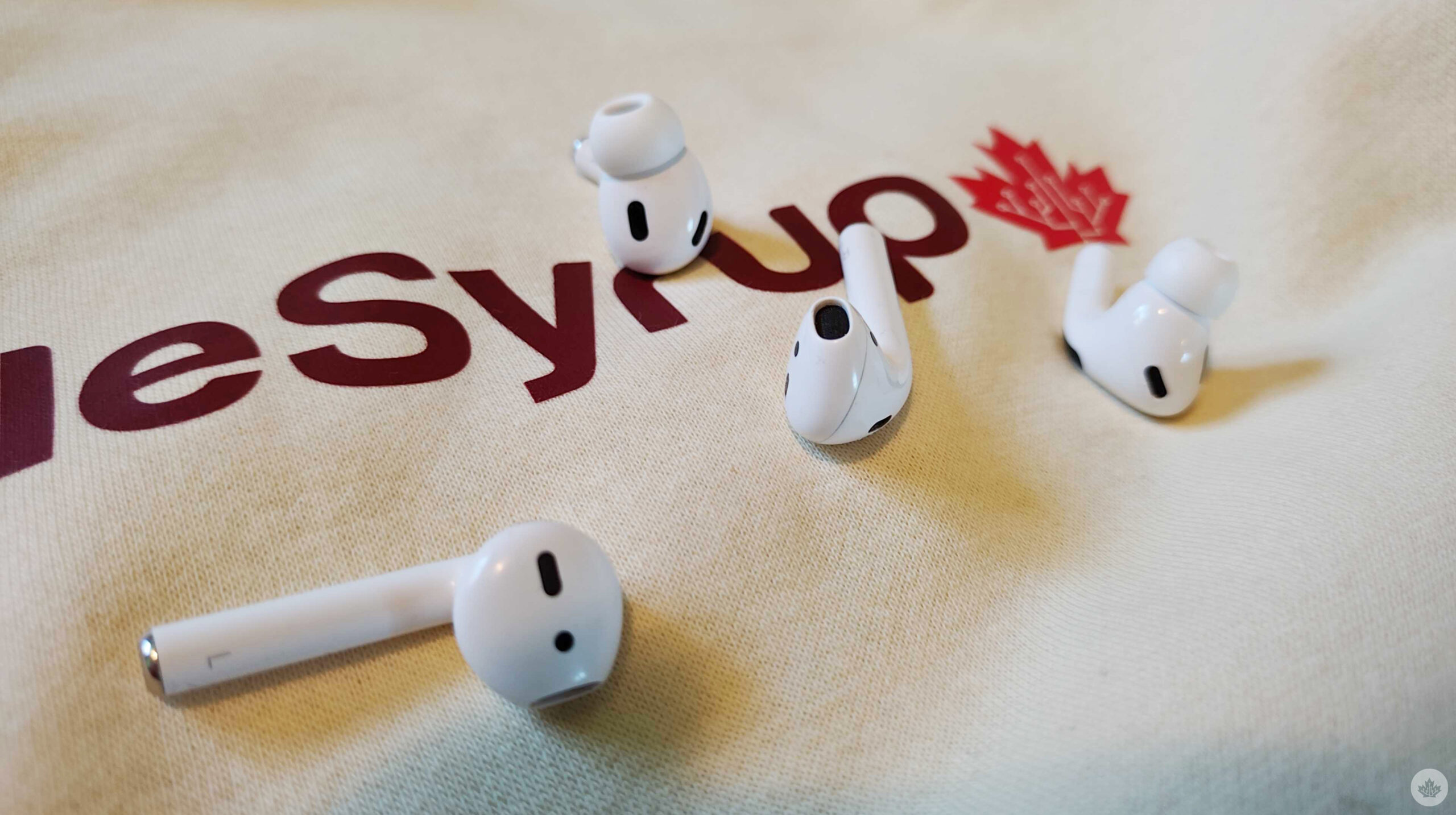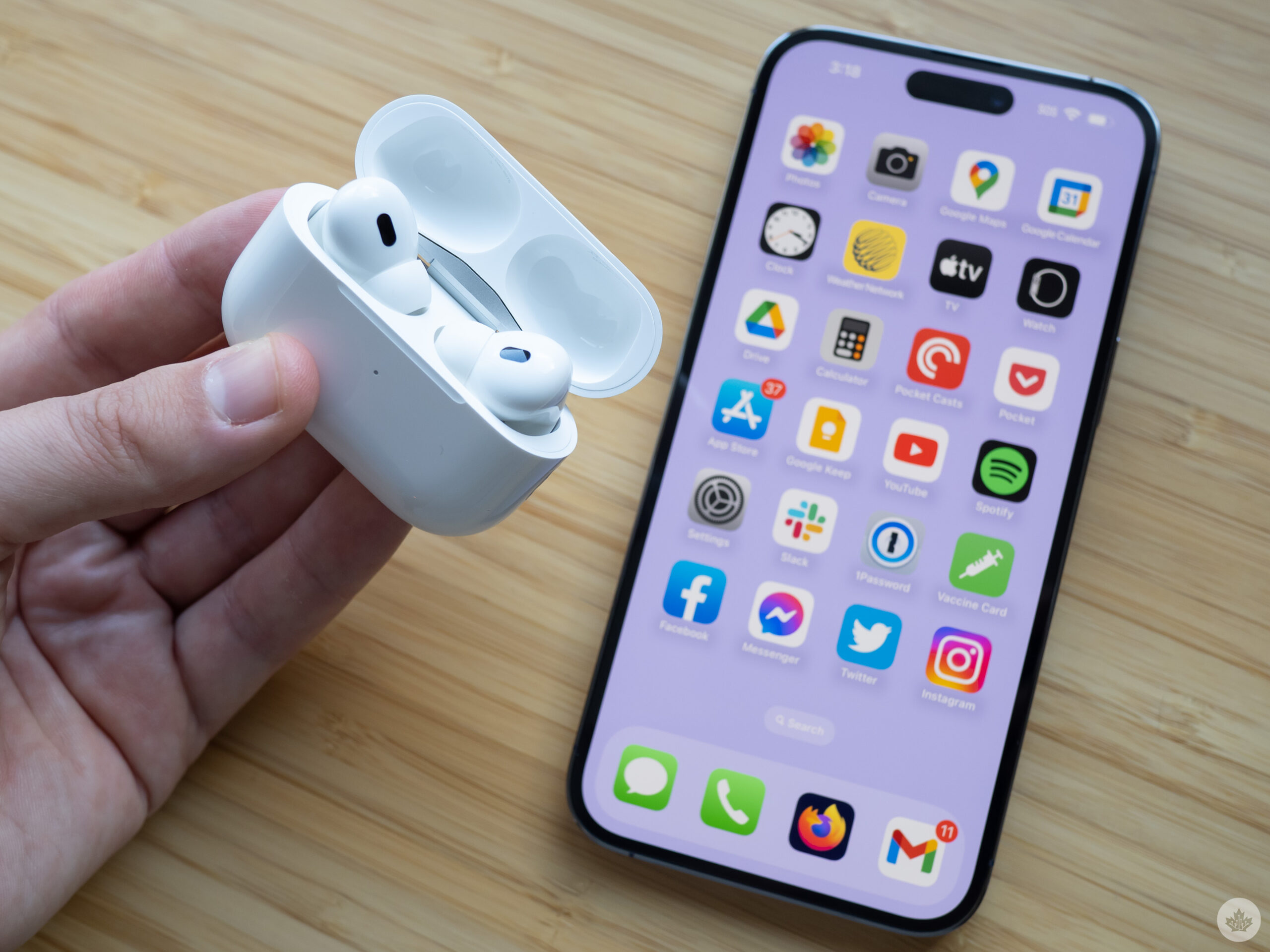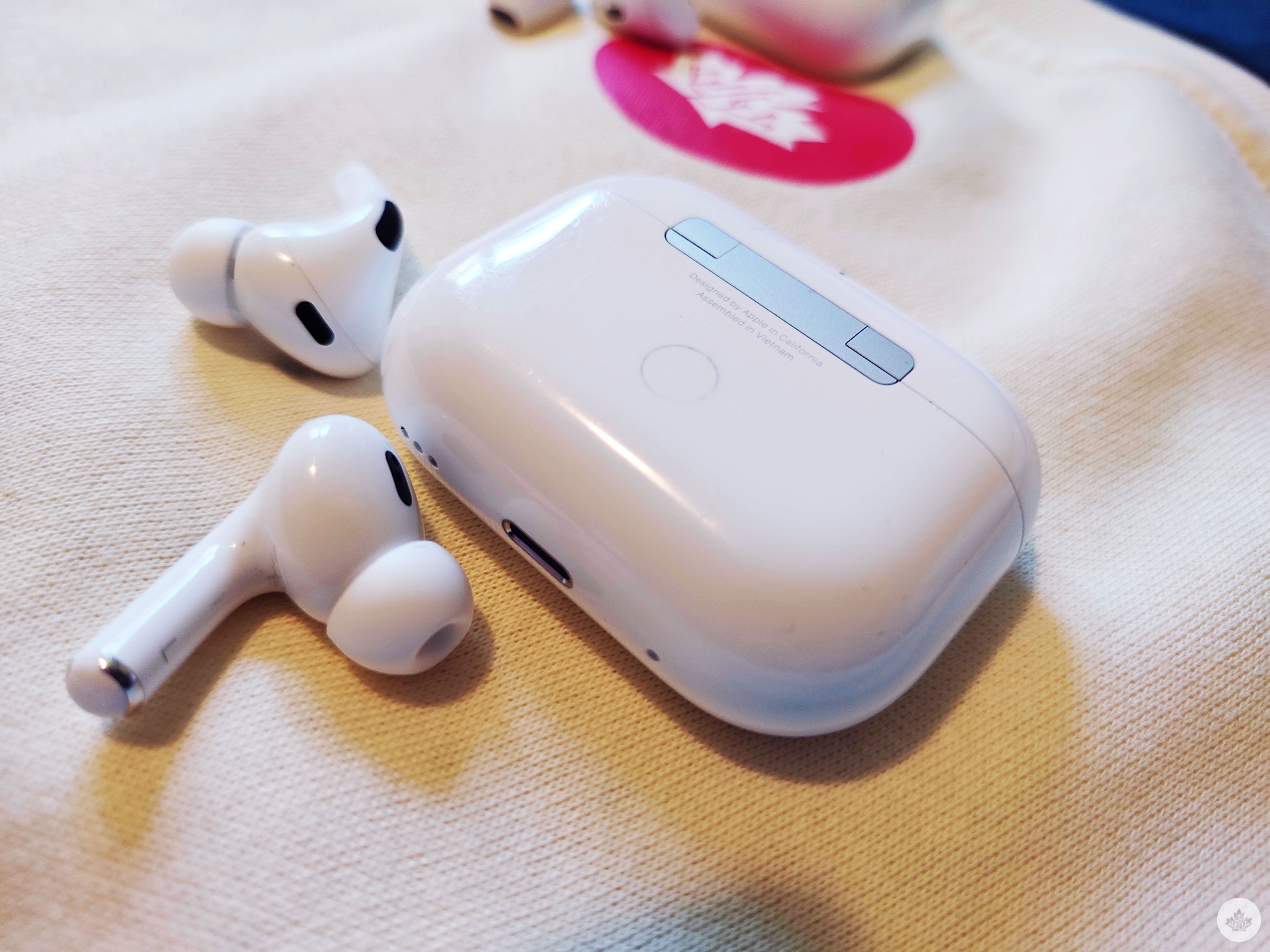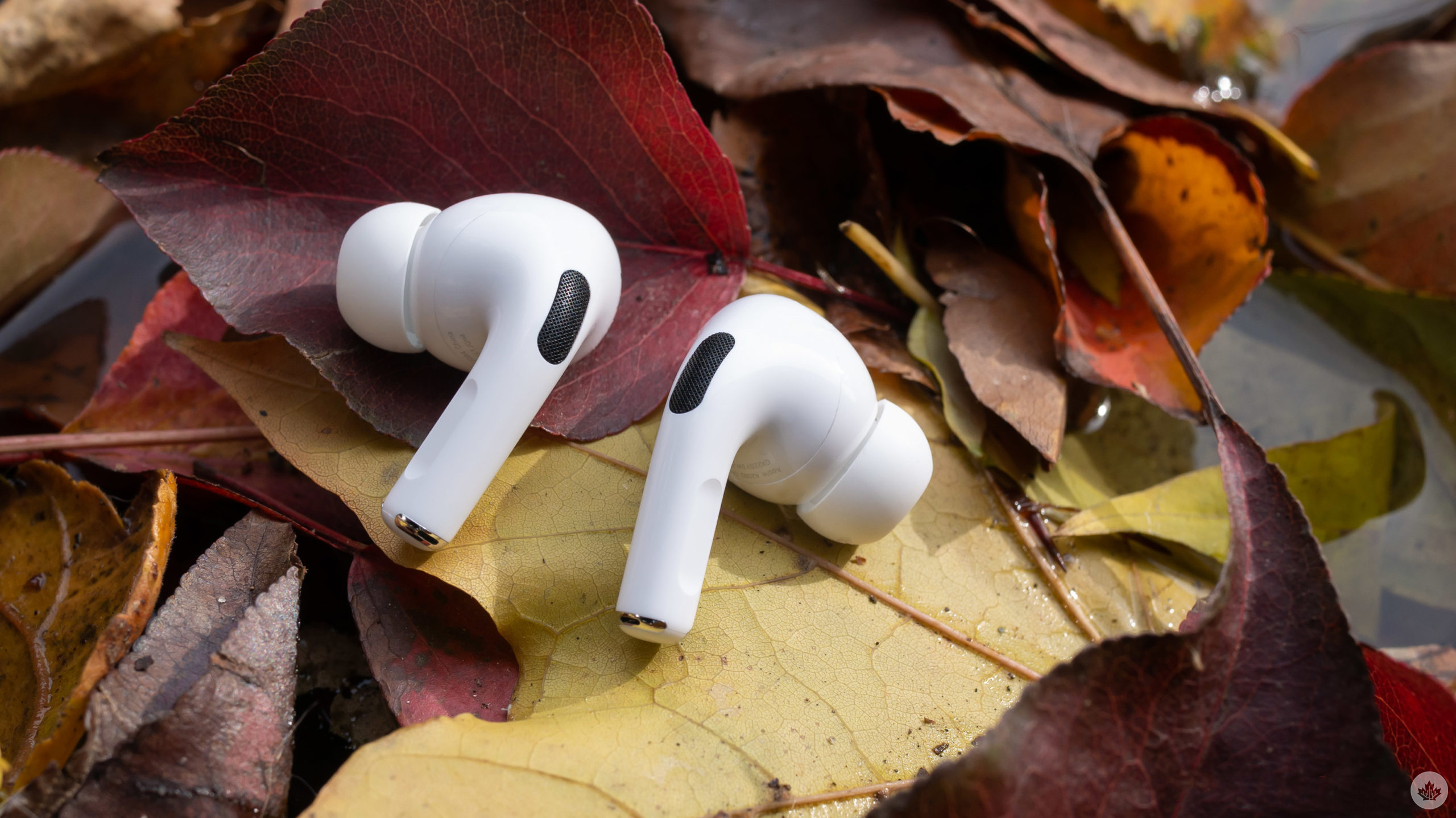
Apple’s AirPods are undoubtedly one of the most popular wireless earbuds on the market, offering seamless connectivity within the tech giant’s ecosystem and beyond, a sleek and simple design, and great sound.
Apple released the 1st-Gen AirPods back in 2016, and upgraded them in 2019. In the same year, the 1st-Gen AirPods Pro were revealed, followed by the 3rd-Gen AirPods in 2021 and the 2nd-Gen AirPods Pro rather recently, in 2022, and now there are the new USB-C 2nd-Gen AirPods.
I have been using the regular 2nd-Gen AirPods (2019) for roughly two years now, and I decided to upgrade to the 2nd-Gen AirPods Pro for three main reasons: I needed reliable earbuds that work well within the Apple ecosystem (with my Macbook for work, with my iPad for content and with my phone for everything else), I needed top-of-the-line noise-cancelling/Adaptive Audio features. Finally, I upgraded because the wireless earbuds were recently discounted.
If you own the original AirPods from 2016 or the 2019/2021 upgrades, you might be wondering if it’s worth upgrading to the latest 2nd-Gen AirPods Pro. The answer depends on your preferences and needs, but I, for one, am loving the upgrade.
 I recently resumed strenuously working out, and I look forward to hitting the gym at least four to five times a week. During workouts, the 2019 AirPods just weren’t cutting it for me. For one, the gym I go to has a weird selection of music. I don’t want to listen to pop or generic 2016-2017 trap music on repeat when I’m lifting weights.
I recently resumed strenuously working out, and I look forward to hitting the gym at least four to five times a week. During workouts, the 2019 AirPods just weren’t cutting it for me. For one, the gym I go to has a weird selection of music. I don’t want to listen to pop or generic 2016-2017 trap music on repeat when I’m lifting weights.
The 2019 AirPods didn’t block out the music, nor did they block out the chatter, and I didn’t want to opt for headphones because they trap sweat, and make my head warm.
The second-gen AirPods Pro were a clear contender for the gym earbud need, and when they were discounted by $50 (I bought them for $279, regularly $329), I snagged them.
The noise-cancelling on the 2nd-Gen AirPods Pro is undeniably great. It offers headphone-level noise cancellation without the added bulk, and I can wear them for the entirety of the workout without hurting my head or ears.
The 2nd-Gen AirPods Pro comes with four different silicone tips, which means everyone can find the perfect fit for their ears. The 2nd-Gen AirPods Pro also stay snug in my ears while working out and/or running, which wasn’t the case with the 2019 AirPods, which used to slowly fall out of my ears several times mid-workout, owing to their one-size-fits-all approach.
 Recently added smart features like ‘Conversation Awareness’ included in the ‘Adaptive Audio’ suite mean that I no longer need to pause music, turn the volume down, or take out an AirPod to have a conversation with someone around me. The earbuds automatically detect when I start speaking and lower the music volume. Volume creeps back up once the conversation is over.
Recently added smart features like ‘Conversation Awareness’ included in the ‘Adaptive Audio’ suite mean that I no longer need to pause music, turn the volume down, or take out an AirPod to have a conversation with someone around me. The earbuds automatically detect when I start speaking and lower the music volume. Volume creeps back up once the conversation is over.
The smart and automatic combination of switching between noise cancellation and transparency mode depending on your environment and what you’re doing alone makes the upgrade from 2019 AirPods to the new second-gen AirPods Pros a versatile choice that was worth it, at least for me. It’s worth noting that the Adaptive Audio features need to be toggled on within AirPods settings.
Another feature that sets the AirPods Pro apart from the original AirPods is its support for personalized spatial audio, which creates a 3D sound effect that makes you feel like you’re in the middle of the action. Upgrading from the 2019 AirPods, the 2022 AirPods Pros’ spatial audio is a game changer for music, as well as for movies and TV shows.
I almost always have ‘Spatial Audio’ turned on, and the music just doesn’t sound as good with it turned off. Then there’s head tracking, which feels like a gimmick when listening to music, but enjoyable when watching movies or shows.
The original AirPods do not have adaptive audio or spatial audio, so they offer a more standard stereo sound, which was good for its time but won’t cut it now.
 Not that it makes or breaks the earbuds, but the 2nd-Gen AirPods Pro have an IPX4 rating for both the earbuds and the charging case. The original AirPods have an IPX4 rating only for the earbuds, not for the charging case, which means you can be a lot more careless with the second-gen Pros and get away without any real damage.
Not that it makes or breaks the earbuds, but the 2nd-Gen AirPods Pro have an IPX4 rating for both the earbuds and the charging case. The original AirPods have an IPX4 rating only for the earbuds, not for the charging case, which means you can be a lot more careless with the second-gen Pros and get away without any real damage.
If you’re like me and have stuck with the original AirPods for a while now, upgrading to the 2nd-Gen Pro means you’ll also go a little longer without charging the case. For reference, with the original AirPods, I had to charge the case at least once, and on some weeks, even twice per week. With the second-gen Pro, however, with normal usage like listening to music while travelling, at the gym, and for watching content, the case only needs to be charged once roughly every one-and-a-half weeks.
Although this is still less than some of Sony’s and Sennheiser’s offerings, those earbuds don’t offer seamless connectivity across Apple’s ecosystem, which was a prerequisite for me buying new earbuds. Wireless charging is an added bonus, and so is its built-in speaker that makes it easy to locate when misplaced. The 2019 AirPods case, for reference, does not feature a built-in speaker, or support wireless charging.
 If you’re happy with your original AirPods and do not need ANC, spatial audio and smart Adaptive Audio features, you may not feel the need to upgrade. However, if you want to experience the best that Apple has to offer in its wireless earbuds category, upgrading to the 2nd-Gen AirPods Pro are a no-brainer as they offer a notable upgrade in terms of sound quality, fit, smart features, personalized listening experience and more.
If you’re happy with your original AirPods and do not need ANC, spatial audio and smart Adaptive Audio features, you may not feel the need to upgrade. However, if you want to experience the best that Apple has to offer in its wireless earbuds category, upgrading to the 2nd-Gen AirPods Pro are a no-brainer as they offer a notable upgrade in terms of sound quality, fit, smart features, personalized listening experience and more.
Via Apple, the 2019 2nd-Gen AirPods are available for $179. The 3rd-Gen AirPods start at $229, while the 2nd-Gen AirPods Pro cost $329.
At its recent fall hardware event, Apple upgraded the second-gen AirPods with USB-C and Lossless Audio with Apple Vision Pro. Learn more about the USB-C AirPods Pro here.
MobileSyrup utilizes affiliate partnerships. These partnerships do not influence our editorial content, though we may earn a commission on purchases made via these links that help fund the journalism provided free on our website.
MobileSyrup may earn a commission from purchases made via our links, which helps fund the journalism we provide free on our website. These links do not influence our editorial content. Support us here.


